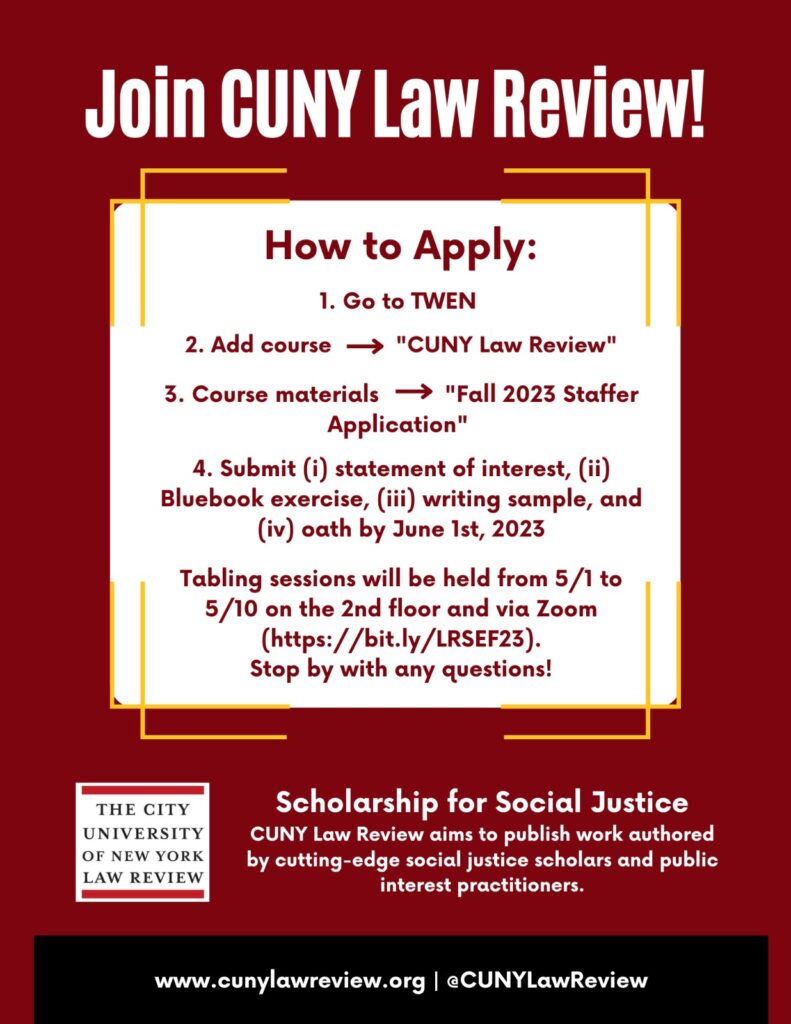“Destroying Democracy from the Inside Out: Legislative, Judicial, and Executive Attacks on the Administrative State”
CALL FOR PAPERS
From the emergence of the major question doctrine and attacks on Chevron deference to the defunding of administrative agencies and the politicization of ALJs, the administrative state is under attack by every branch of the government. For a special Symposium Edition, the CUNY Law Review seeks to publish radical scholarship that addresses the deterioration of American democracy through threats to/the dismantling of the administrative state.
We are looking to publish several short pieces (2-10 pages double-spaced) on legislation, executive orders, and court decisions that undermine the administrative state as a way to stymie justice efforts and the (perhaps few) instances where they work to protect the administrative state. Potential lenses through which we hope to address this issue are: environmental justice, land use, Indigenous rights, labor rights, family law, immigration, and poverty. In keeping with CUNY Law Review’s overall mission, we encourage authors to address this topic from a critical standpoint that highlights issues of systemic racism and injustice.
In addition to submission of a written piece for the Symposium Edition, we are interested in inviting authors to participate in panels at the CUNY Law Review’s 2024 Symposium. If you have a piece that is ready, in the works, or that you are interested in developing that fits within this topic, please reach out to:
Symposium Editor Arpita Vora at arpita.vora@live.law.cuny.edu as soon as possible and no later than September 15, 2023 with a submission or abstract as well your resume or CV.
We welcome contributions from legal academics, practitioners, students, and organizers.
The City University of New York (CUNY) School of Law is one of the nation’s leading public interest law schools and prepares hundreds of attorneys every year to fight for social justice. The CUNY Law Review is an independent, student-run publication devoted to producing public interest scholarship and recognized as one of the leading civil rights journals in the country.

